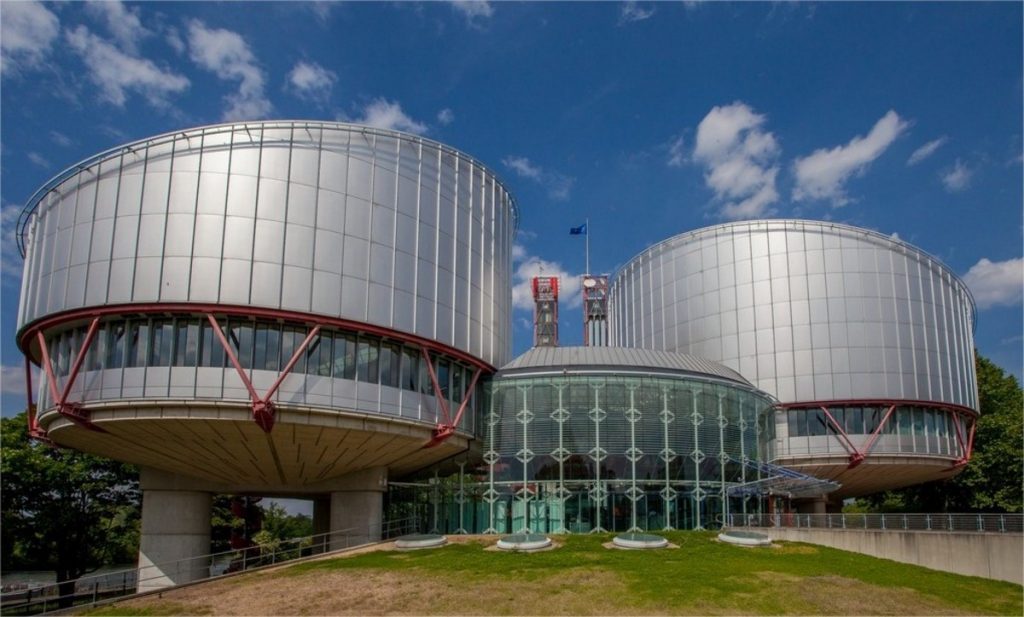
The European Court of Human Rights has published its judgment in the case of Nika Melia v. Georgia. The case pertained to the arrest of opposition politician Nika Melia in 2019 and the attachment of an electronic monitoring bracelet.
The court concluded that there was no violation of the right to liberty and security and no violation of the limitation on the use of restrictions on rights.
The court found the claim admissible and determined that there was no violation of Article 5 of the Convention, which deals with the right to liberty and security. Additionally, no separate issue was identified in the third paragraph of Article 5.
According to a press release published by the Strasbourg Court, the Court agrees with the Georgian courts’ reasoning that at the preliminary stage when the criminal investigation was opened, the material available in the case file concerning the applicant supported a “reasonable suspicion”, within the meaning of Article 5 of the Convention, that he might have committed a criminal offence.
“The Court takes note of the fact that the trial court’s decision of 17 February 2021 referred to (a) the decisions of 27 June and 2 July 2019; (b) the content of Article 198 § 2 of the CCP which, in turn, provided for the risks of absconding, destruction of evidence, and reoffending as possible grounds for applying preventive measures; and (c) the applicant’s erratic behaviour and his demonstrative attitude in refusing to comply with the judicial decisions adopted in respect of him (see paragraphs 36 and 43-44 above). In the light of the foregoing, and taking into account the submissions of the Prosecutor General (see paragraph 48 above) to which the decision of 17 February 2021 also referred, the reasoning of the decision in question evidenced the trial court’s inference, which the Court does not consider unreasonable, that the risks cited in the decisions of 27 June and 2 July 2019 still persisted, justifying the conversion of bail into pre-trial detention, as provided for in the law.
The Court additionally observes that the pre-trial detention in the present case was ordered as a measure of last resort, following the applicant’s explicit refusal to comply with the bail order of 3 November 2020, and only after the time-limit to post the increased amount of bail had expired. In this connection, the Court emphasises that while the decision of 3 November 2020 also imposed on the applicant an obligation to obtain the authorities’ authorisation to leave the country, it annulled all the other outstanding conditions attached to bail. Thus, the posting of the increased amount of bail by the applicant – which was not suggested to have been beyond his means – would have put him in a better situation than he had been in before the breach of the bail conditions.
The applicant had suggested at the domestic level that he had “no moral right” to obey a decision taken by institutions which in his view were influenced by his political rivals and subsequently called his non-compliance a “political act”. In this connection, the Court can appreciate that the applicant’s conduct may have been situated within the broader context of the apparently tense political environment in the country at the material time, his status as a politician and his right to freedom of expression. However, it appears that rather than face any consequences expressly provided for in the law for non-compliance with the bail order, the applicant expected, given the lapse of a year and a half since the opening of the criminal investigation in respect of him, to have the preventive measures applied in the context of the criminal proceedings against him annulled altogether. However, the Court cannot endorse such an interpretation of the domestic law and the Convention, as it would imply that applicants can expect to benefit from breaching a lawful judicial order rather than bear any consequences provided for in the law, an interpretation which would be inconsistent with the spirit of the Convention and the principle of the rule of law which underlies Article 5 § 1 of the Convention and, more generally, is inherent in the system of protection established by the Convention and the Protocols thereto, being expressly mentioned in the Preamble to the Convention,” the press release reads.






